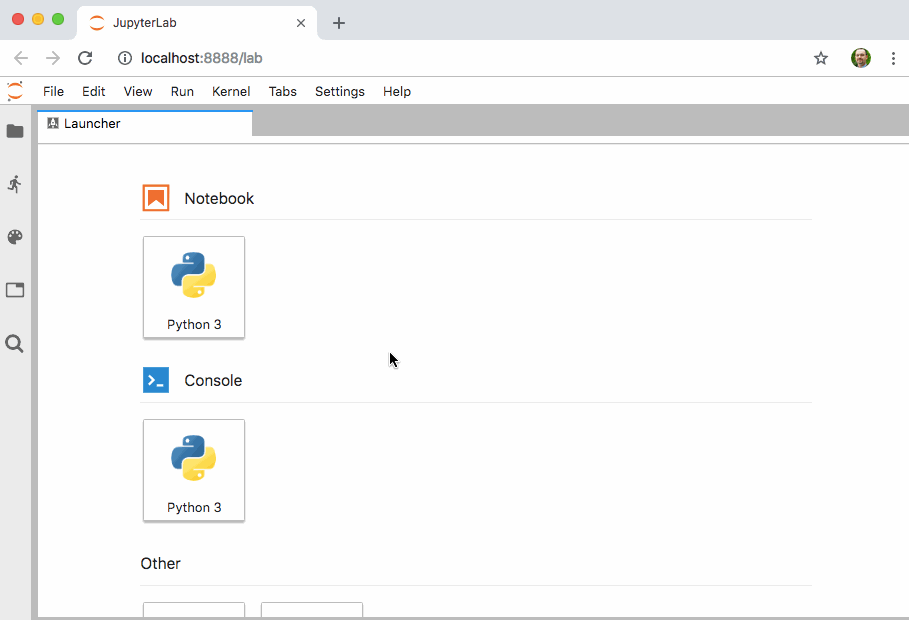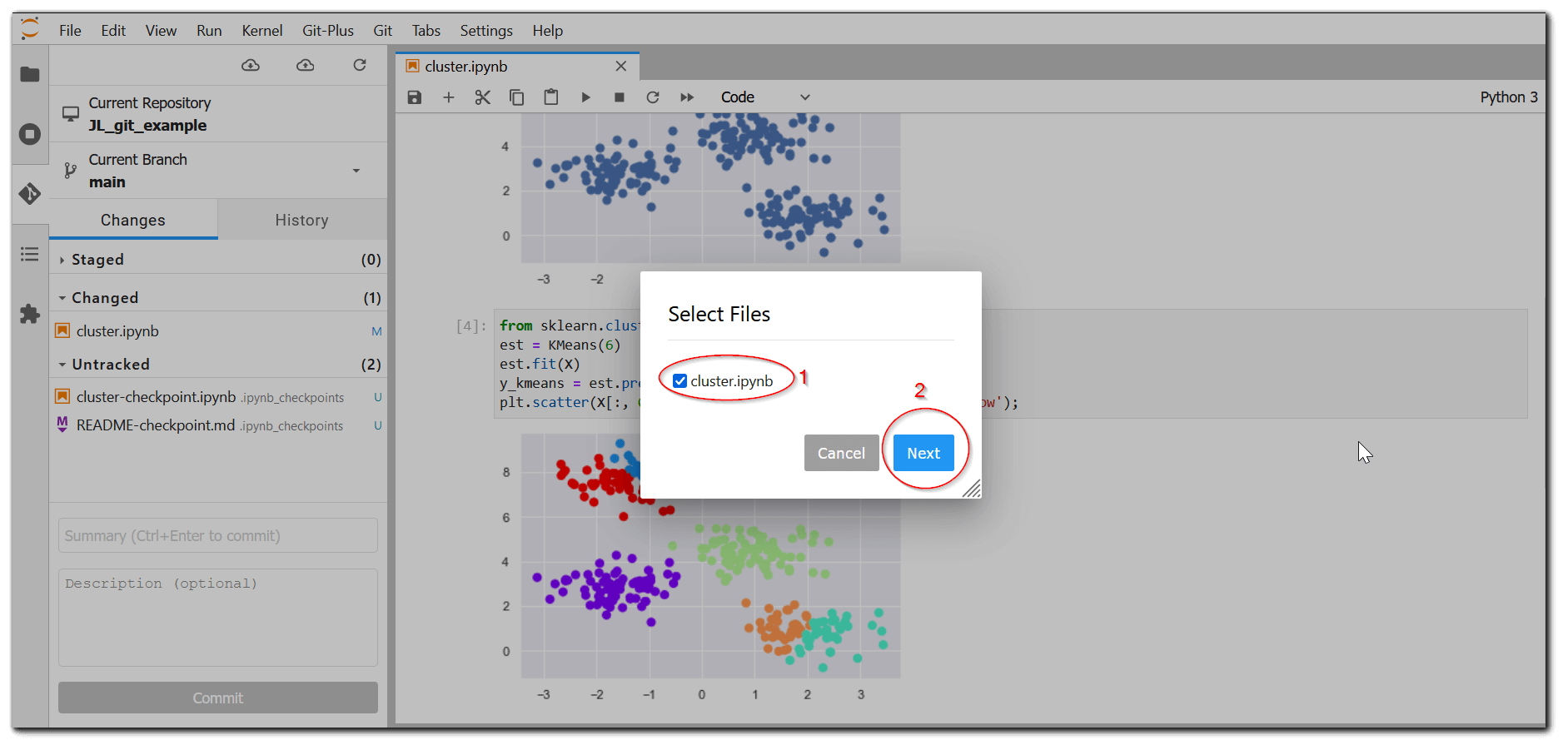

There’s also a JupyterLab Git extension which helps with many other Git operations. We’ve seen how you can use JupyterLab GitPlus to push GitHub commits & create pull requests directly from the Jupyter UI. It shows you rich notebook diffs and lets you comment on a notebook cell or line.

While GitHub does not provide a way to discuss notebook changes easily, you can do so with ReviewNB. You can click on the link to review the pull request diff on GitHub or ReviewNB Provide Pull Request title & commit message Go to menu Git-Plus -> Create Pull Request Pull Requests are useful for discussion & feedback on the changes before merging them into the master. ReviewNB provides you rich diffs so you can easily track changes in a Jupyter Notebook commit. You can click on the link to review the commit diff on GitHub or ReviewNB as shown below. Open the notebook, make your changes, save the changed notebook.Navigate to the GitHub repository in JupyterLab (the repository needs to have been cloned beforehand).If everything goes smoothly, you will see a new extension called Git-Plus in the menu panel as shown below. Installation is pretty straightforward but you do need to provide a GitHub access token for the extension to be able to push commits & open pull request.Īfter the installation process, open your local JupyterLab. Create GitHub pull request from JupyterLab.This is an open source JupyterLab extension that lets you, There are two different ways to debug a Jupyter. Today, we’re going to introduce you to one such extension - JupyterLab GitPlus. To learn more about Git integration within VS Code, visit Source Control in VS Code. There are JupyterLab extensions to help you version control notebooks with a graphical UI so you don’t need to worry about Git commands. Secondly, even if the team decides to use GitHub for Jupyter notebooks, not every data scientist is familiar with Git commands. Once the appropriate environment is activated, you can create. To select an environment, use the Python: Select Interpreter command from the Command Palette ( Ctrl+Shift+P ). ReviewNB helps solve this problem with rich Jupyter diffs. To work with Python in Jupyter Notebooks, you must activate an Anaconda environment in VS Code, or another Python environment in which youve installed the Jupyter package. First & foremost, GitHub does not render proper diffs for notebook JSON. Integrating Jupyter Notebooks with GitHub has always been a challenge. GitPlus - A JupyterLab Extension for GitHub Integration


 0 kommentar(er)
0 kommentar(er)
